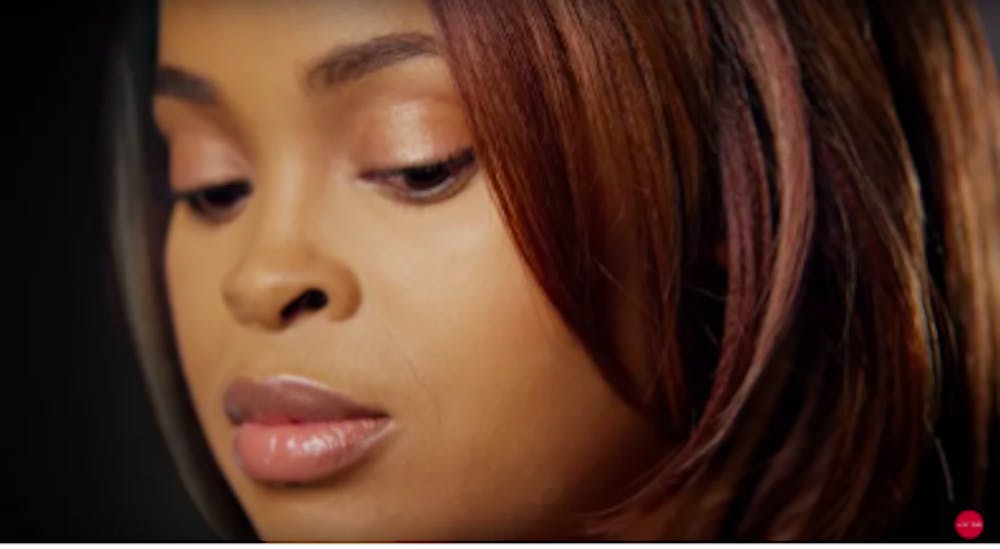By Lara Becker
Reviews Editor
In the era of #MeToo and the #TimesUp movement, there’s another celebrity that we need to talk about: Robert Kelly, aka R. Kelly. As an R&B artist with some of the highest grossing music in the industry, Kelly’s songs continue to be played worldwide. However, what you might not know when you’re singing every word to “Ignition” are the multiple allegations of sexual assault of a minor that have been denied by the singer for almost two decades, which is explored in the series, “Surviving R. Kelly.”
The six-part Lifetime series begins by providing a necessary background of Kelly himself, as he didn’t become an alleged sexual predator overnight. He was a young man who clearly demonstrated early warning signs about his budding sexuality, anger and the blurred lines between the two. Lena McLin, Kelly’s choir teacher at Kenwood High School in Chicago, discussed noticing a particularly disturbing vibe emanating from Kelly’s singing once the student came to understand his talent. “He was very, very...aggressive,” the educator said in the series. “Aggressive in some of his sexual language too, which we had to discuss and say that it wouldn’t be appropriate in school. It really wouldn’t be appropriate period.”
When Kelly dropped out of Kenwood before his senior year to begin life as a recording artist, his brothers, friends and former teachers noticed that he would still hang out around the school and recruit young girls to bring to his studio. And soon enough, in 1994, 27-year-old Kelly was married to 15-year-old singer Aaliyah. Kelly forged her age on the marriage certificate at the same time that he produced her debut album, “Age Ain’t Nothing But a Number.” By 1996, Kelly was facing his first allegations concerning a sexual relationship with a 15-year-old. He settled the case out of court. By 2002, the infamous sex tape depicting Kelly having sexual relations with a 14-year-old girl was released. Six years later, he was found not guilty on all counts.
Ironically, from 1996 to 2002, when allegations against Kelly were at their height, so was his career. During this time, he released “I Believe I Can Fly,” a single which skyrocketed his success. The series exemplifies that not only was Kelly accepted back into society with open arms, but his career was boosted to superstar status.
What these anecdotes have exposed, and what may be the most horrifying of all, is the common thread of every incident that was glossed over, pushed aside or not taken seriously. Every time a woman is told that her abuse is just an overreaction, justice is not being served. What these women are begging to understand is simple – why will people believe a man but not a woman?
After close to 20 years of internalizing the horrors they have experienced at the hands of the artist they once loved, these courageous women are sounding a battle cry. Not only are these events irreparable, but they are a part of a broken system that is long overdue for change.
Alongside the the poignant content of the series, the way in which it was filmed allowed for each woman’s story to speak for itself. “Surviving R. Kelly” provided a platform for them to speak their truth. If nothing else, the series intended to start the conversation; to let voices be heard that had been silenced for so many years.
Following the release of the limited series, the impact has been staggering.
Artists such as Chance the Rapper, Lady Gaga, Christina Aguilera and more have been publicly apologizing for their involvement with Kelly’s music after watching the series. The series alone has resulted in a fresh public indictment of Kelly’s character, which may soon lead to further investigation into his conduct.
The irony here is that this series is being hailed as revolutionary, groundbreaking, earth-shattering. It’s being touted as a narrative changer with the potential for huge ripple effects. But, honestly, that’s missing the point entirely. It shouldn’t have to take a television series to shift the dialogue towards truth. What’s so devastating about this series is that it’s old news and no one listened. Again. Until it became sensationalized, social media cool, #trending. We should have listened 20 years ago.







